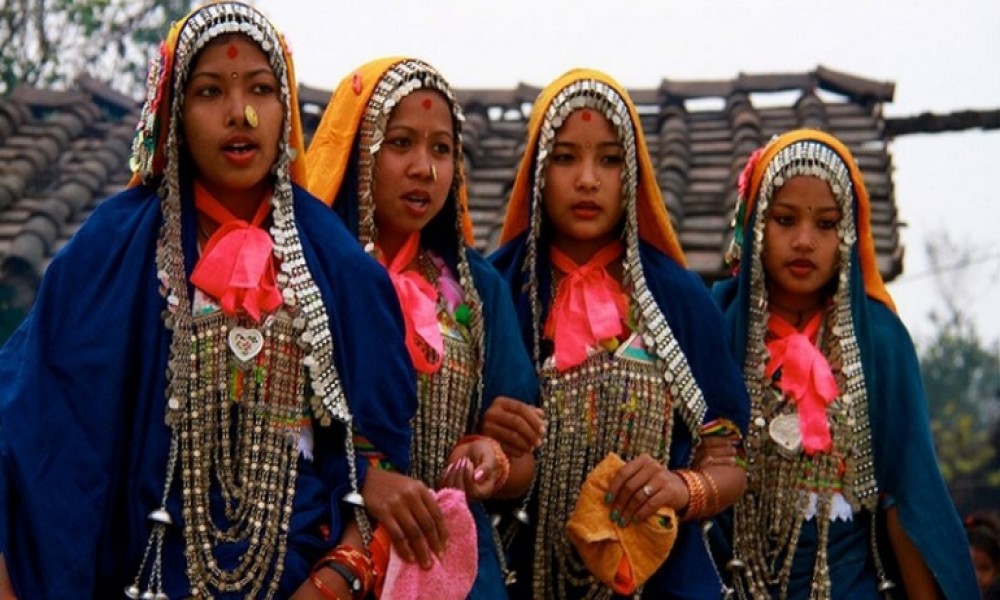The Maghi, Maghe Sakranti, or Makar Sankranti which falls mid-January, is one of the biggest festival being observed by Tharu Indigenous communities as a new year in Nepal. Tharu indigenous communities observe this festival not merely as a New Year festival alone but they also celebrate this day commemorating the day of getting freedom.
Previously, Kamaiyas and the Kamlaris, the bonded labors working for their landlords, used to get break from their daily chores on the very day and make a new agreement with their masters. On July 17, 2000, government declared all Kamaiyas free from the bonded labor, since then, majority of Tharu, who made their living being bonded labor had got a complete freedom.
Maghi is one of the major national festivals in Nepal, while it is important particularly to Tharu indigenous communities since it does not give them a change to reflect upon their past but also an occasion to plan and prepare for the future.
Tharu indigenous communities observe this festival with much merrymaking continuously for four-days.
On the previous night, they spend sleepless night dancing and singing, throughout night they have a campfire. Early in the next morning, they have dips in the freezing water and pay homage to a self-made idol of lord Shiva on the riverbanks.
A day prior to start a festival, tharu family sacrifice the pig, but the Tharu living in the eastern Nepal don't do this.
After taking a dip, they also visit to the temple for paying homage and also they visit not only at the elders' home for having wishing, but visit to every home to exchange the wishing and relations. They have a tradition of giving gifts to the daughters.
Maghi in Kathmandu
Since 2002, Tharu communities residing in Kathmandu valley have been observing this festival organizing a mega event together. On January 15, this year as well they organized a Maghi mega event in the Tudikhel, the open ground in Kathmandu.
The grand opening of the mega event was inaugurated by Prime Minister Shusil Koirala.
On the day, members of Tharu communities wear traditional attire, exhibit their handicraft and traditional jewels, attires etc. they serve their traditional cuisine, and perform their cultural rallies and performances.
Tharu indigenous communities residing at any part of the country observe this festival with same importance and speciality. Maghi festival is known in different names such as Maghi, Magh, Maghi Dewani, Khichara, Makar Sakranti etc.
They set up approximately 80 stalls showing up their handicrafts, food stalls, books and printing materials relating to Tharu, traditional clothing, jewelries etc.
According the latest census, their population puts some 1,737, 470, about 6.6 percent of the total 26 million population of the country. along with Kathmandu valley, Tharu indigenous communities spread across 24 different districts in Nepal.
Democratic practice
Maghi is not merely the festival alone but it is the day in which Tharu indigenous community members exercise their democratic rights. On the very same day, all the villagers come at one place and elect their village chief of their customary organization known in different names such as Badghar, Bhalmansa, Mahatanwa, Kakandar and so forth. Mahatanwa or the Badghar is their traditional system which makes plans, policies and strategies for the development of the community. More importantly, if the dispute is arises within the community, this very system decides the cases whether that is a civil or the criminal.
Every family of Tharu make plans and strategy for next year, including division of the works according to the age and gender. On the very same day, they also resolve the financial matters if there is any. It is compulsary that at least a member from a family present in the meeting or in the selection of the chief. If anyone breaks the rule, the chief penalizes with fines. They have been doing this for centuries.









